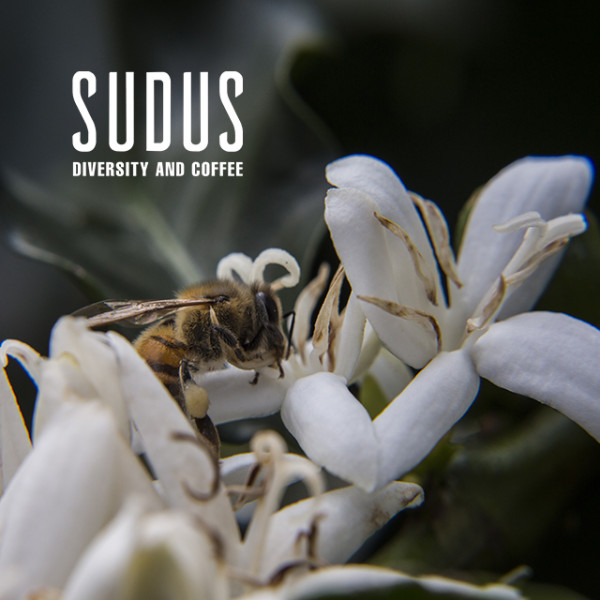
Grow flower corridors and stamp your positive footprint on your next cup of coffee.
How Does It Work?
It’s simple. In a space of land we sow, without agrochemicals, different varieties of coffee. On the margins of this crop we trace and plant a corridor of selected herbaceous and shrubby plants that flourish and provide food and habitat for pollinators and other species. Among these pollinators are wild bees, which are of particular interest to us, since they are the ones who pollinate the coffee and can lead to higher production, as well as, probably, a better quality of the cup. This process brings new varieties of plants, insects, mammals and birds, helping biodiversity, also adds value to coffee, already of high quality.
In addition to contributing to the environment, our purpose is to establish relationships with international clients who are willing to pay the price with a premium called “Pollinators Awareness.” This premium price will be invested in the fairest payment to the producers and the maintenance of the corridors. The creation of a label is our next step, in which we are already making progress with producers who have expressed interest.
We have already attained a 28-hectare farm to be our pilot to then upscale across the region.
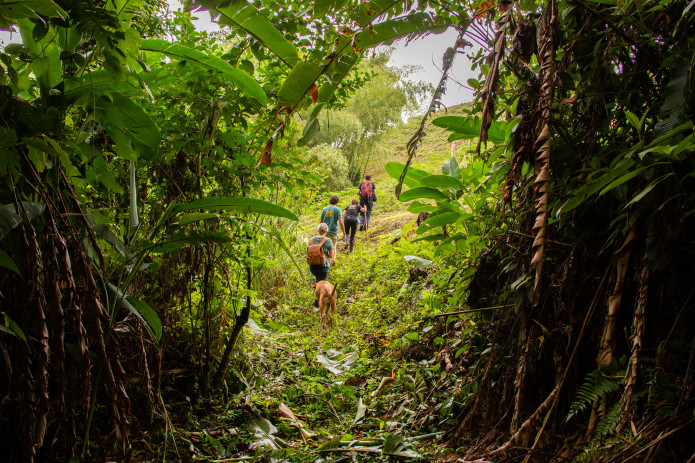
We need your help to plant this farm with coffee and flower corridors that will serve as a habitat for bees and other threatened pollinators.
With 50,000 pounds we will be able to complete our organic model and bring the coffee to production ensuring a protected environment for bees and other insects.
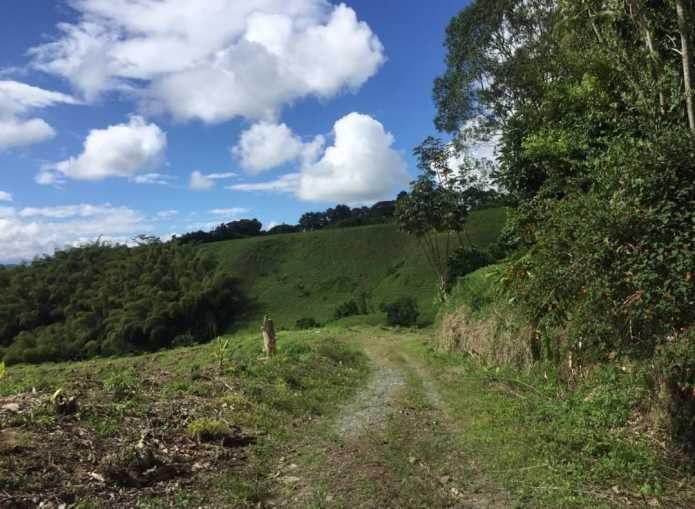
La Colina Farm, Quindío, Colombia.
The Impact
Colombia is the second most megadiverse country in the world, but also presents worrying threats to biodiversity. There is an urgency to prove that we can grow the crop successfully without agro-toxins thereby looking after pollinators.
The province of Quindío, head of the Coffee Cultural Landscape and declared by UNESCO as a World Heritage Site in 2011, has seen the disappearance of more than 1,500 bee colonies, reducing pollination and adding to rising worries about food security.
The Team
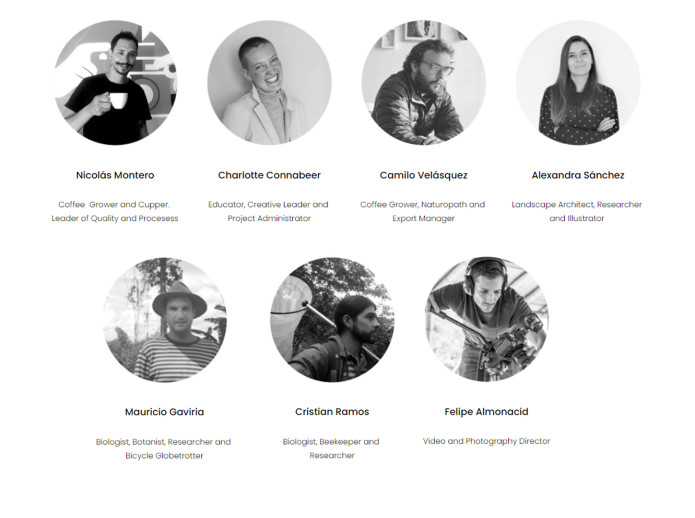 We have detailed the flower and herb inventory for the corridors, and will also be measuring the impact of the intervention. Our 28-hectare model farm will serve as a beacon for other producers seeking increased efficiency and a cleaner, environmentally friendly relationship between the coffee crop and its ecosystem. We will expand the model by assisting interested Colombian coffee producers in the transformation of their farming. In doing so, these producers will receive a monetary bonus upon selling their crop.
We have detailed the flower and herb inventory for the corridors, and will also be measuring the impact of the intervention. Our 28-hectare model farm will serve as a beacon for other producers seeking increased efficiency and a cleaner, environmentally friendly relationship between the coffee crop and its ecosystem. We will expand the model by assisting interested Colombian coffee producers in the transformation of their farming. In doing so, these producers will receive a monetary bonus upon selling their crop.
Working with local producers
Experience
We are fifth generation coffee growers and have participated in the transformation of the sector. From production using traditional practices for sale in the domestic market of parchment coffee, to the sowing and marketing of exotic varieties implementing innovative processes to meet international demands of the third wave of coffee.
These new trading scenes show us that specialty coffees are appreciated for their quality and good practices, both environmentally and socially. Pesticide-free crops seeking to increase natural pollination implies enormous challenges, but our team has a diverse range of expertise ready to undertake this project.
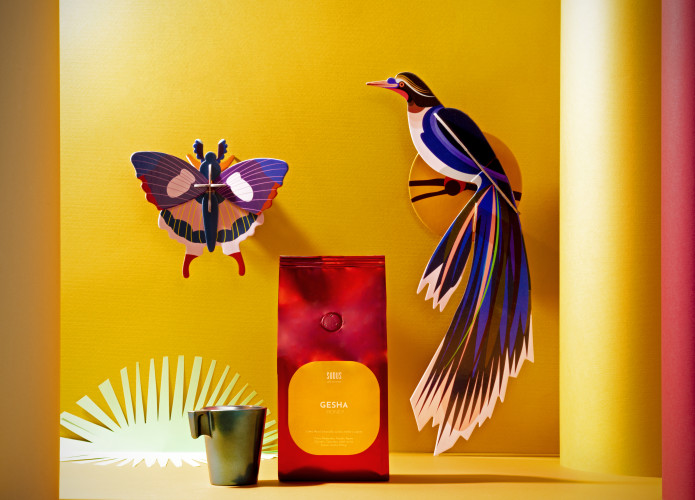
Our greatest ally, the Botanical Garden of Quindío, has over 20 years of experience and research on pollinators, plants and reproduction. We are also allied with the consulting firm AB Origen, a non-profit organization established in March 2014. It promotes sustainable development in the agriculture and tourism sectors via 4 specific lines of management: Technical assistance for the implementation and certification of green seals and sustainability protocols; education and training of human talent in sustainability; verifications, second party audits, and evaluations to determine compliance with sustainability protocols; and finally, formulation and management of sustainable agriculture and tourism projects.
We extend a sincere invitation to not just read about us and our project, but to come and see it for yourself.
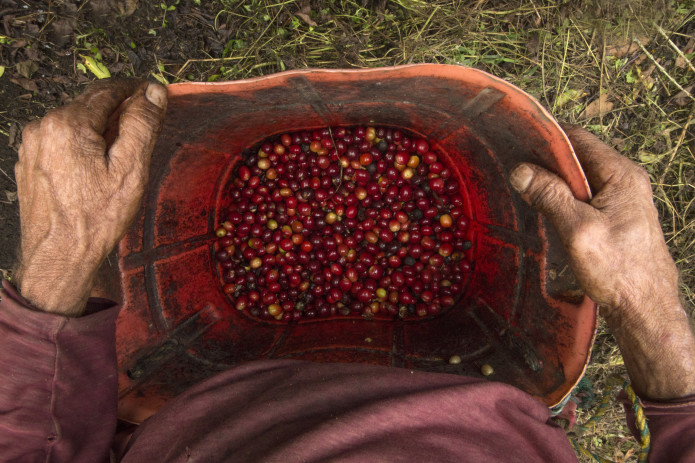
The coffee region of Colombia is a magical place, filled with beauty and learning. Come and see what wonders coffee plantations, their people and their landscape offer.
Risks & Challenges
Undertaking an agricultural and conservation project involves many risks for which our team of experienced professionals must prepare in advance.
Critical Climatic Phenomena: Design and implement irrigation in a timely manner, in case of drought. In the case of rains, intervene in risk areas with ditches and minimally invasive rain channeling methods.
Floral corridors fail to have expected impact: They do not attract pollinators or instead attract pests to the crop. Our team of biologists will be in continual observation to make quick decisions on any changes to plants or shrubs needed.
A coffee crisis or an abrupt drop in coffee prices: Our coffee crop will be interwoven with other crop varieties (bananas, beans and corn) which will maintain a reliable income.
In the execution of this project, the results are expected to contribute to the fulfillment of some of the United Nations Sustainable Development Goals:
SDG 1. End of poverty: The generation of fair and optimal working conditions.
SDG 2. Zero hunger: Pollination is fundamental for food security.
SDG 3. Health and well-being: Zero agrochemicals that are harmful to health.
SDG 6. Clean water and sanitation: We have 3 water springs that will be protected.
SDG 8. Decent work and economic growth: We guarantee all participants subsidized income derived from the added value of an eco-friendly crop.
SDG 10. Reduction of inequalities: By improving income and providing education to people linked to the project, we contribute to narrowing the inequality gaps that have characterized the coffee sector
SDG 12. Responsible production and consumption: Education of both producers and consumers to understand the necessity of clean practices and pollination.
SDG 15. Lives of terrestrial ecosystems: The project basis is caring for the diversity and health of the ecosystem of coffee farms.
Other Ways You Can Help
There are many ways to help our project advance. If you’d like to support us in another form other than monetary, please share this initiative on your social networks and with all your friends and family. Indiegogo offers a variety of useful sharing tools to make it as easy as possible, and we appreciate it very much!
If you work in any related or relevant field, all contributions or insight, knowledge and information are always welcome via our email. You can also come and try your hand at farming life in Colombia for a little while, and volunteer on the farm.

